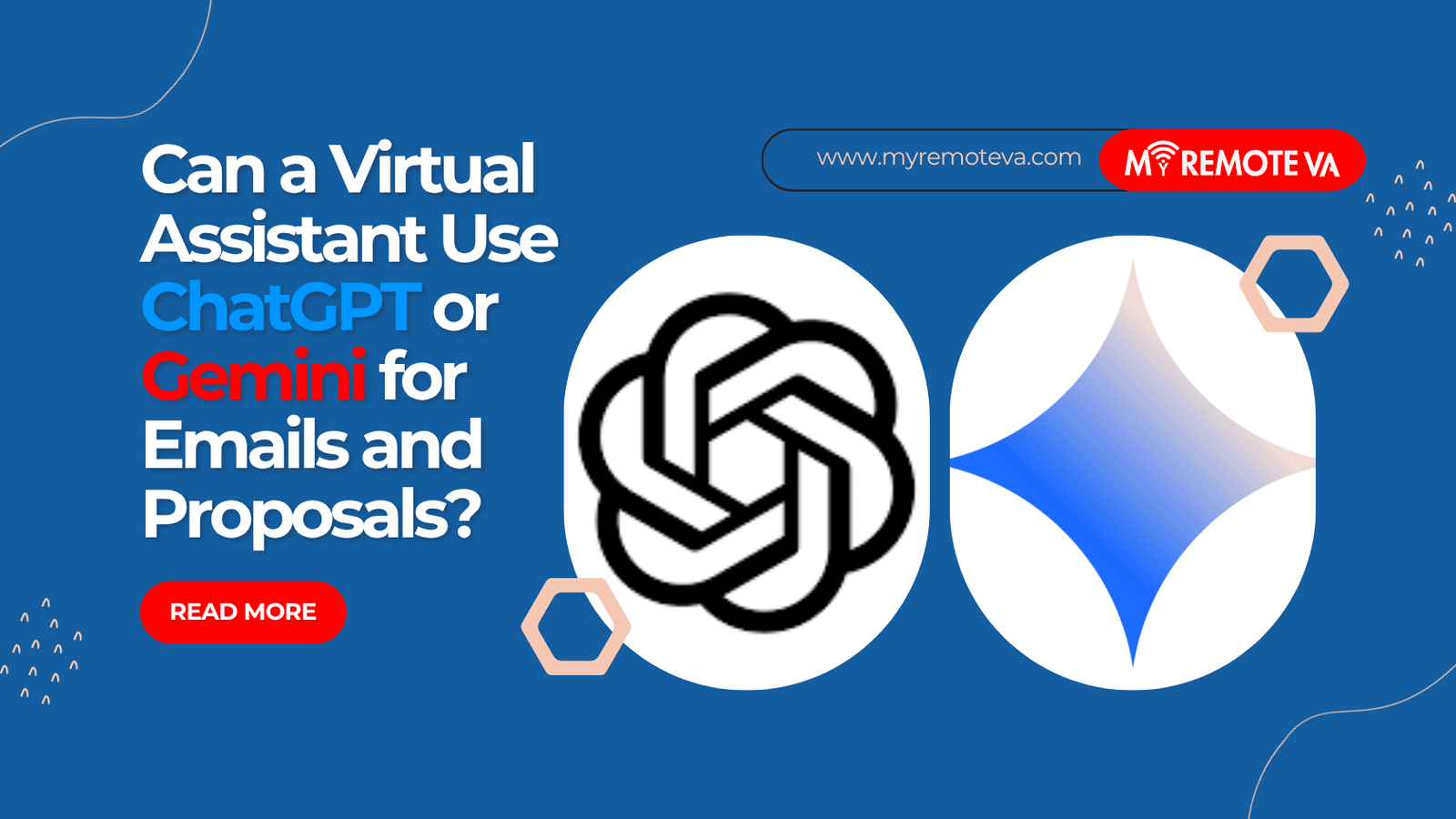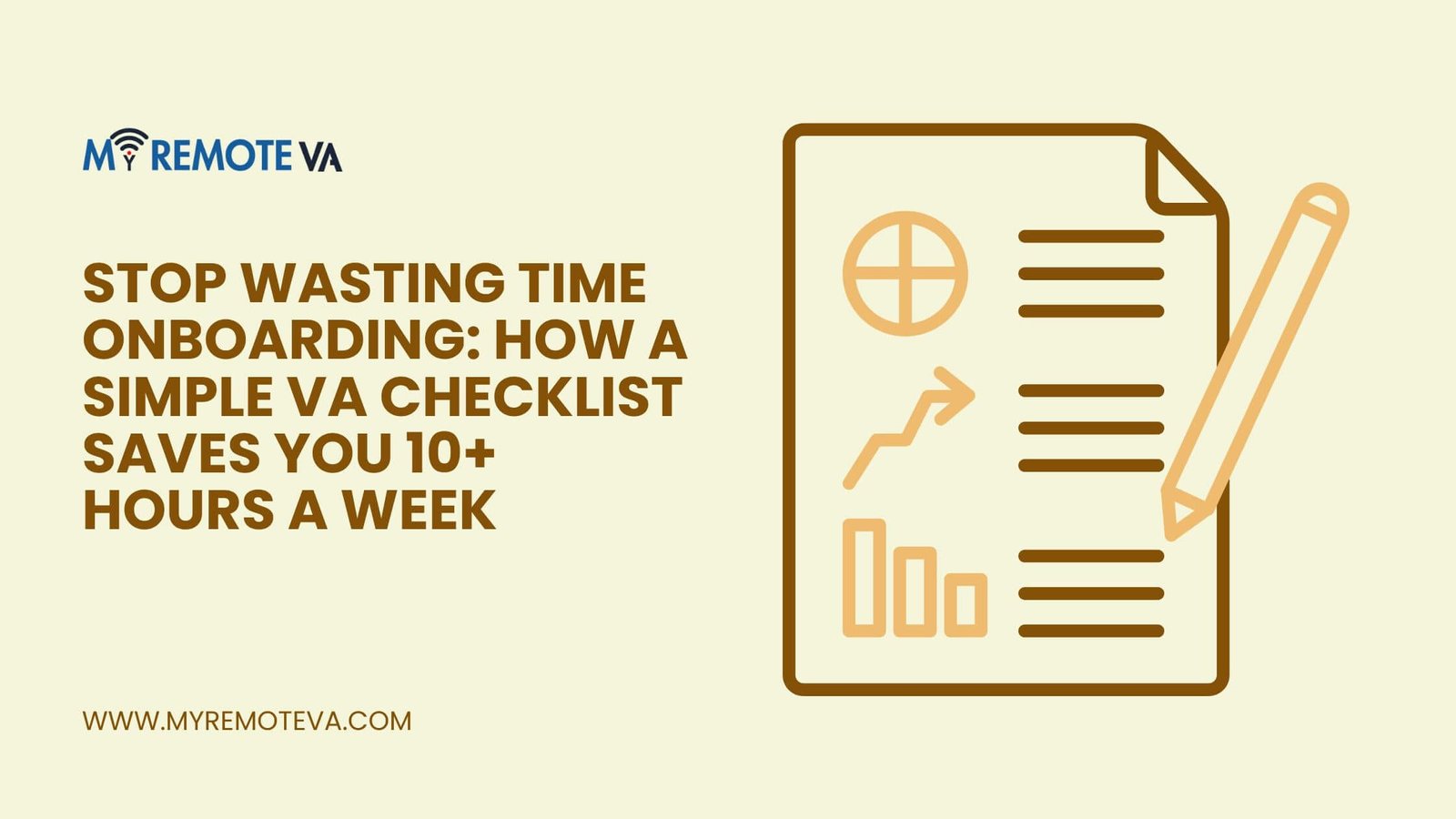How a Virtual Assistant Can Supercharge Your Real Estate Investing: List-Building, Cold-Calling & Lead Follow-Up
Real estate investing demands a significant investment of time and resources. Time spent on administrative tasks, like list building, cold-calling, and lead follow-up, can detract from your core focus: analyzing deals, securing funding, and closing transactions. A virtual assistant (VA) can be a game-changer, freeing you to concentrate on high-value activities that directly impact your bottom line.
- How a Virtual Assistant Can Supercharge Your Real Estate Investing: List-Building, Cold-Calling & Lead Follow-Up
- 1. Introduction: Why Real Estate Investors Need Virtual Assistants
- 2. List-Building: Finding the Right Properties with a VA
- 3. Cold-Calling: Reaching Potential Sellers and Generating Leads
- 4. Lead Follow-Up: Nurturing Leads and Closing Deals
- 5. Benefits of Using a VA for Real Estate Investing
- 6. Choosing the Right Virtual Assistant
- 7. Conclusion: Maximizing Your Real Estate Investment Potential with a VA
- 8. FAQ - Frequently Asked Questions
List Building: Targeting the Right Properties
Building a comprehensive and targeted list is the foundation of any successful real estate investing strategy. A VA can assist with:
- Data Mining: Sourcing potential leads from various online platforms, public records, and real estate databases.
- List Segmentation: Categorizing leads based on criteria like property type, location, estimated value, and owner situation.
- Data Cleansing: Verifying contact information, identifying duplicates, and ensuring data accuracy.
- Research: Gathering additional information on properties and owners to personalize outreach efforts.
By delegating list-building tasks, you gain a valuable database of qualified leads, saving you countless hours of tedious research.
Cold-Calling: Reaching Potential Sellers
Cold-calling remains a powerful tool for real estate investors, but it’s also time-consuming and requires persistence. A VA can handle the initial outreach, allowing you to focus on warmer leads and qualified prospects.
- Dialing: Making numerous calls to potential sellers, overcoming gatekeepers, and delivering your initial pitch.
- Script Management: Using pre-approved scripts to ensure consistent messaging and gather essential information.
- Lead Qualification: Identifying motivated sellers and gathering key details about their properties and situations.
- Appointment Setting: Scheduling appointments with qualified leads for you to conduct further assessments and negotiations.
A VA’s dedication to cold-calling significantly increases your reach and sets the stage for successful deal-making. Dedicated supervisors ensure quality and training standards are maintained.
Lead Follow-Up: Nurturing Relationships and Closing Deals
Consistent lead follow-up is crucial for converting prospects into clients. A VA can provide the support you need to stay top-of-mind and close more deals.
- CRM Management: Entering lead information into your CRM system, tracking interactions, and setting reminders for follow-up.
- Email Marketing: Creating and sending personalized email sequences to nurture leads and provide valuable content.
- Appointment Reminders: Contacting leads to confirm appointments and ensure they are prepared for the meeting.
- Task Management: Keeping track of all follow-up tasks and ensuring that no leads fall through the cracks.
A structured follow-up system, managed by a VA, significantly improves your conversion rates and maximizes your return on investment.
By offloading these critical but time-consuming tasks to a virtual assistant, real estate investors can reclaim their time, focus on their strengths, and ultimately achieve greater success. Start with flexible hourly plans (5, 10, 20, 30 hours) or build a dedicated team (80 or 160 hours). Even a free hour each month can help you get started.
1. Introduction: Why Real Estate Investors Need Virtual Assistants
Real estate investing demands relentless effort, from identifying promising properties to nurturing leads and closing deals. However, much of this crucial work involves repetitive, time-consuming tasks that can drain an investor’s energy and divert focus from high-level strategy. This is where a virtual assistant (VA) becomes an invaluable asset.
Imagine spending countless hours compiling lists of potential properties, making cold calls that often go unanswered, or meticulously following up with lukewarm leads. These activities, while essential, are not the most effective use of an investor’s expertise. A VA can handle these tasks efficiently, freeing up your time to focus on analysis, negotiation, and building relationships – activities that directly impact your bottom line.
Specifically, VAs can revolutionize three core areas of real estate investing:
List-Building: Unearthing Hidden Opportunities
Sourcing reliable leads requires diligent research and data gathering. A VA can scour public records, online databases, and real estate listings to identify potential properties that meet specific criteria, saving you hours of manual searching. This includes:
- Identifying distressed properties
- Researching absentee owners
- Compiling lists of properties with specific characteristics (e.g., zoning, square footage, location)
By automating this process, you gain a significant edge, allowing you to quickly identify promising opportunities and act before the competition.
Cold-Calling: Maximizing Outreach Efficiency
Cold-calling is a numbers game, but it doesn’t have to be a time sink. A VA can handle initial outreach, screening potential leads and only forwarding qualified prospects to you. This allows you to focus your energy on engaging with interested parties and building rapport.
- Making initial contact with potential sellers
- Qualifying leads based on predetermined criteria
- Scheduling appointments for you to speak with qualified leads
Lead Follow-Up: Nurturing Prospects to Closure
Consistent follow-up is crucial for converting leads into deals, but it can be challenging to stay on top of every prospect. A VA can manage your CRM, schedule reminders, and personalize follow-up communications to ensure no lead falls through the cracks. This includes:
- Sending automated email sequences
- Making follow-up calls to gauge interest
- Updating your CRM with the latest information on each lead
By systemizing lead follow-up, you can significantly increase your conversion rates and close more deals.
In summary, a VA empowers real estate investors to reclaim their time, improve their efficiency, and ultimately boost their profitability by taking control of administrative, technical, customer support, marketing, and creative tasks.
2. List-Building: Finding the Right Properties with a VA
Building a comprehensive and targeted property list is the foundation of successful real estate investing. However, this process can be time-consuming and tedious. A virtual assistant (VA) can significantly streamline and improve your list-building efforts, allowing you to focus on analyzing potential deals and closing transactions.
How a VA Can Assist with List-Building:
- Data Mining and Research: VAs can efficiently scour online databases, public records, and real estate platforms for potential properties matching your investment criteria. This includes identifying properties with specific characteristics such as location, size, age, and tax status.
- Lead Generation from Various Sources: They can collect leads from sources like expired listings, pre-foreclosures, tax delinquency lists, and absentee owner databases. This proactive approach allows you to identify motivated sellers before the competition does.
- Property Information Gathering: VAs can research individual properties to gather vital information such as owner contact details, mortgage information, and property history. This deep dive allows for a more informed assessment of each potential deal.
- List Segmentation and Organization: A VA can meticulously organize your property lists based on specific criteria, such as location, property type, or potential profitability. This segmentation allows for targeted marketing and outreach.
- Data Entry and Management: VAs can handle the often-overlooked task of data entry, ensuring your property information is accurate and up-to-date within your CRM or spreadsheet. Consistent data management is crucial for efficient decision-making.
By delegating list-building tasks to a VA, real estate investors can save valuable time and resources. This allows them to focus on higher-level activities such as analyzing potential deals, negotiating with sellers, and securing financing.
3. Cold-Calling: Reaching Potential Sellers and Generating Leads
Cold-calling remains a vital strategy for real estate investors seeking off-market deals and motivated sellers. However, it’s time-consuming and requires persistence. A virtual assistant can significantly streamline and enhance your cold-calling efforts.
How a VA Can Supercharge Your Cold-Calling:
- Prospect Identification & Qualification: After list-building, a VA can further qualify leads within that list. They can verify property details, research ownership information, and identify potential red flags or opportunities before you ever pick up the phone. This saves you valuable time by focusing your efforts on the most promising prospects.
- Script Creation and Refinement: A VA can assist in crafting effective cold-calling scripts tailored to specific lead types (e.g., pre-foreclosure, vacant properties, absentee owners). They can also analyze call outcomes to refine scripts and improve conversion rates.
- Executing the Cold Calls: VAs can make the initial outreach calls, delivering your script and gauging the seller’s interest. They can handle objections, answer basic questions, and schedule follow-up calls for you to speak with truly motivated sellers.
- Data Entry and CRM Management: Accurately tracking call outcomes and seller information is crucial. A VA can meticulously log call details into your CRM (Customer Relationship Management) system, ensuring that no lead falls through the cracks. They can also tag leads based on their interest level and specific needs.
- Setting Appointments: One of the primary goals of cold-calling is to secure appointments with potential sellers. A VA can manage your calendar, schedule appointments, and send reminders to both you and the seller.
- Filtering & Prioritizing Leads: A VA can filter through the leads generated from cold calling, prioritizing those that are most promising based on your investment criteria. This allows you to focus on the high-potential deals.
By delegating the time-intensive tasks of cold-calling to a virtual assistant, real estate investors can free up their time to focus on deal analysis, negotiations, and closing deals.
4. Lead Follow-Up: Nurturing Leads and Closing Deals
Effective lead follow-up is the backbone of any successful real estate investment strategy. A virtual assistant can be instrumental in ensuring no lead falls through the cracks, significantly increasing your chances of closing deals.
Consistent Communication
A VA can manage your lead follow-up, ensuring consistent communication across all channels. This includes:
- Email Marketing: Crafting and sending personalized email sequences to nurture leads over time. This could involve sharing valuable content, property updates, or special offers.
- SMS Messaging: Utilizing SMS to send quick reminders, follow-up questions, or property alerts.
- Phone Calls: Making follow-up calls to warm leads, answering questions, and moving them further down the sales funnel.
CRM Management
Your VA can manage your CRM (Customer Relationship Management) system to ensure all lead information is accurate and up-to-date. This includes:
- Data Entry: Accurately inputting lead details, contact information, and interaction history.
- Lead Segmentation: Categorizing leads based on their interests, stage in the buying process, and other relevant criteria.
- Task Management: Scheduling follow-up tasks and reminders to ensure timely communication.
Personalized Follow-Up Strategies
Generic follow-up can be ineffective. Your VA can personalize follow-up based on lead behavior and engagement, such as:
- Tracking Lead Engagement: Monitoring email opens, click-throughs, and website visits to understand lead interests.
- Tailoring Communication: Crafting personalized messages based on specific property interests or needs.
- Handling Objections: Identifying and addressing common objections to help overcome roadblocks and move leads closer to conversion.
Reporting and Analysis
A VA can provide valuable insights into your lead follow-up efforts by:
- Tracking Key Metrics: Monitoring metrics like response rates, conversion rates, and cost per lead.
- Identifying Trends: Analyzing data to identify trends and opportunities for improvement.
- Generating Reports: Providing regular reports to keep you informed of your lead follow-up performance.
By entrusting lead follow-up to a virtual assistant, real estate investors can free up their time to focus on higher-level tasks like deal analysis, property acquisition, and investor relations. Flexible hourly and team-based plans can cater to varying needs, allowing investors to delegate administrative, tech, and marketing tasks related to lead nurturing.
5. Benefits of Using a VA for Real Estate Investing
Leveraging a virtual assistant can significantly streamline real estate investing, especially when it comes to crucial tasks like list-building, cold-calling, and lead follow-up. By delegating these responsibilities, investors can free up their time to focus on higher-level strategic activities, such as deal analysis, negotiation, and closing deals.
Increased Efficiency and Productivity
A dedicated VA can efficiently manage time-consuming tasks, allowing investors to handle more business and grow their portfolios. Imagine no longer spending hours sifting through public records to build a targeted list or making countless cold calls with minimal success. A VA can handle these repetitive tasks, resulting in a higher volume of leads generated and nurtured.
Improved Lead Qualification and Conversion Rates
VAs are skilled at qualifying leads by gathering essential information and identifying motivated sellers. By consistently following up with leads, they ensure that no potential deal is missed, increasing the chances of converting leads into profitable investments. This systematic approach to lead management maximizes the effectiveness of marketing efforts.
Cost-Effectiveness
Hiring a VA is often more cost-effective than employing full-time staff. With flexible hourly or team-based plans, real estate investors can access the support they need without the overhead costs associated with traditional employees, such as benefits and office space. This allows for a more efficient allocation of resources and increased profitability.
Scalability and Flexibility
As a real estate investment business grows, the demands on the investor’s time increase. A VA provides the scalability needed to adapt to changing business needs. Whether it’s increasing lead generation efforts or managing a growing portfolio of properties, a VA can seamlessly integrate into the team and provide the necessary support.
6. Choosing the Right Virtual Assistant
Finding the right virtual assistant (VA) is crucial for maximizing the benefits they offer in list-building, cold-calling, and lead follow-up. A mismatch can lead to wasted time and resources, while a good fit can significantly boost your real estate investment success.
Key Considerations When Selecting a VA:
- Experience & Skills: Does the VA have experience in real estate, specifically with list-building, cold-calling, and CRM management? Look for a VA with a proven track record and relevant skills. Can they navigate property records, use skip tracing tools, and effectively communicate with potential leads?
- Communication Skills: Clear and professional communication is essential, especially for cold-calling and lead follow-up. Ensure the VA has excellent verbal and written communication skills.
- Tech Proficiency: Real estate VAs need to be comfortable using various software and tools, including CRM systems, lead generation software, and communication platforms. Verify their familiarity with the tools you use or plan to use.
- Understanding of Real Estate Investing: A VA who understands the nuances of real estate investing, like different investment strategies (e.g., wholesaling, flipping, buy-and-hold), can provide more effective support.
- Time Zone Alignment: Consider time zone differences if you need the VA to make calls during specific hours.
- Reliability and Accountability: A reliable VA is responsive, meets deadlines, and takes ownership of their tasks. Assess their organizational skills and ability to manage their workload effectively.
Evaluating Different VA Options:
Several VA solutions exist, each offering varying levels of support and commitment. Some providers offer curated Hourly Monthly Plans allowing you to delegate tasks such as admin, tech, customer support, marketing, creative tasks, or executive work. These plans often include dedicated supervision, process management, and reporting.
You can also find Dedicated Plans of different hours, or multi-VA setups, which provide a longer commitment for larger and on-going work. These options are ideal if you require a more dedicated and integrated approach to virtual assistance. If you’re looking to test services, some may offer a free option.
7. Conclusion: Maximizing Your Real Estate Investment Potential with a VA
In today’s competitive real estate market, gaining an edge requires strategic efficiency and focused efforts. As we’ve explored, a virtual assistant (VA) can be a game-changer for real estate investors looking to optimize their list-building, cold-calling, and lead follow-up processes.
Unlocking Scalability and Efficiency
By delegating these time-consuming yet crucial tasks to a skilled VA, you free up your own time to focus on higher-level activities like analyzing deals, negotiating contracts, and building relationships with key stakeholders. A VA can handle the repetitive aspects of lead generation, ensuring a consistent stream of potential opportunities without overwhelming your schedule. This allows you to scale your business more effectively, knowing that the foundational elements of prospecting are being handled professionally and diligently.
Data-Driven Results
Imagine consistently building targeted lists based on specific criteria, making personalized cold calls with compelling pitches, and implementing a structured follow-up system that nurtures leads through the sales pipeline. A VA empowers you to implement these strategies effectively and consistently. The efficiency gained translates to more leads, more opportunities, and ultimately, more closed deals. Statistics consistently show that consistent lead generation and follow-up are critical for success in real estate . A VA facilitates that consistency.
Flexible Support Options
Recognizing that every real estate investor has unique needs, flexible hourly and team-based plans are available. Whether you require a few hours a week to manage your lead database or a dedicated team to handle all aspects of your prospecting efforts, a VA solution can be tailored to fit your specific requirements. From curated hourly monthly plans to build a team with dedicated plans, choose the best that suits you.
In conclusion, a virtual assistant isn’t just an administrative assistant; they are a strategic partner who can significantly enhance your real estate investment potential. By leveraging their expertise in list-building, cold-calling, and lead follow-up, you can streamline your operations, maximize your efficiency, and ultimately, achieve your financial goals.
8. FAQ – Frequently Asked Questions
How can a virtual assistant help real estate investors with list-building?
A virtual assistant can significantly streamline the list-building process for real estate investors. They can research and compile targeted lists of potential properties based on criteria like location, property type, size, and price range. This includes gathering data from various online sources, public records, and real estate databases. A VA can also verify the accuracy of the information, ensuring that you’re working with the most up-to-date and reliable data.
What cold-calling tasks can a real estate VA handle?
Virtual assistants can handle a wide array of cold-calling tasks, freeing up your time to focus on more strategic aspects of your business. They can make initial contact with potential leads, qualify prospects based on pre-defined criteria, and schedule appointments for you to meet with promising individuals. Furthermore, they can manage call logs, track call outcomes, and update your CRM with relevant information, ensuring efficient follow-up.
How can a virtual assistant assist with lead follow-up?
Consistent lead follow-up is crucial for converting leads into deals. A VA can automate and manage this process by sending follow-up emails, making reminder calls, and nurturing leads through personalized communication. They can also track lead engagement and prioritize follow-up efforts based on lead activity. This proactive approach ensures that no potential deal falls through the cracks due to lack of attention.
What type of support can a virtual assistant company provide?
Expert virtual assistant support can encompass a wide range of services to aid real estate investors, including admin, tech, customer support, marketing, creative tasks, and executive work. You can often delegate various tasks according to flexible hourly and team-based plans. In some cases, there may be dedicated supervisors managing the VA, shift, processes, and reporting.
What are the types of plans that are typically available?
Virtual assistant services are often offered through various plans. These can include curated Hourly Monthly Plans (e.g., 5, 10, 20, 30 hours) or dedicated plans (e.g., 80 hours, 160 hours, or multi-VA setups). Some companies might offer a trial period to test out their services.











